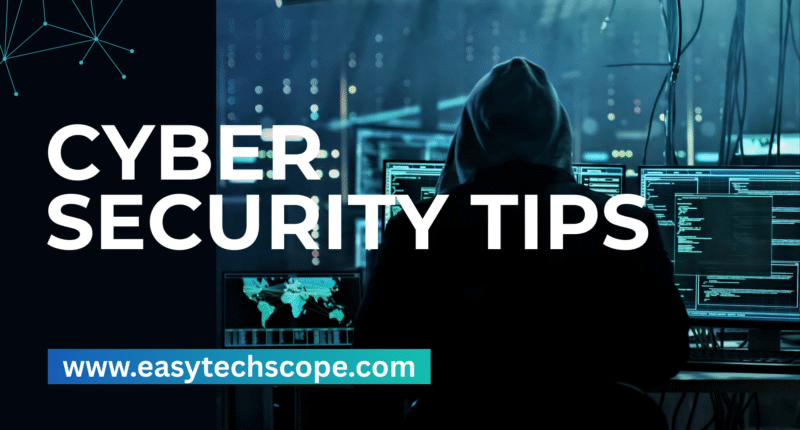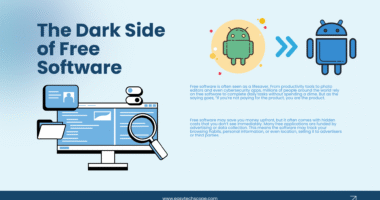In today’s digital age, protecting your personal data online is no longer optional—it’s a necessity. Cyber threats like hacking, phishing, and identity theft are increasing every year. Whether you use the internet for work, shopping, or social media, following simple cybersecurity practices can help you stay safe. Below are seven essential cyber security tips everyone should know and apply.
1. Use Strong and Unique Passwords
Passwords are the first line of defense against hackers. A weak password can give cybercriminals easy access to your accounts.
How to Create Strong Passwords
-
Use a mix of uppercase and lowercase letters, numbers, and special characters.
-
Avoid using personal details like birthdays or names.
-
Create unique passwords for each account instead of reusing them.
Consider using a password manager to keep track of your login details securely.
2. Enable Two-Factor Authentication (2FA)
Even if hackers steal your password, two-factor authentication adds an extra layer of security. It requires a second verification step, such as a code sent to your phone or an authentication app.
Benefits of 2FA
-
Prevents unauthorized access.
-
Protects sensitive data.
-
Works effectively for email, banking, and social media accounts.
3. Keep Your Software Updated
Outdated software is one of the easiest ways hackers exploit vulnerabilities. Regular updates strengthen your system and fix security flaws.
What to Update Regularly
-
Operating systems (Windows, macOS, Linux).
-
Web browsers like Chrome, Edge, or Firefox.
-
Mobile apps and antivirus software.
Turning on automatic updates ensures you never miss critical patches.
4. Be Aware of Phishing Scams
Phishing emails and fake websites trick users into sharing personal information. Cybercriminals often disguise themselves as trusted companies or services.
How to Spot Phishing Attempts
-
Look for suspicious email addresses.
-
Avoid clicking unknown links or downloading attachments.
-
Double-check website URLs before entering credentials.
5. Secure Your Wi-Fi Network
An unsecured Wi-Fi connection is an open invitation for hackers. Protecting your home network keeps intruders out.
Wi-Fi Security Tips
-
Change the default router password.
-
Use WPA3 or WPA2 encryption.
-
Hide your network SSID if possible.
-
Avoid using public Wi-Fi for sensitive transactions.
6. Backup Your Data Regularly
Data loss can happen due to hacking, malware, or even hardware failure. Regular backups ensure you never lose important files.
Backup Methods
-
Cloud storage solutions like Google Drive or Dropbox.
-
External hard drives or USB devices.
-
Automated backup tools for convenience.
7. Install Reliable Security Software
Antivirus and anti-malware tools are essential in defending against cyber threats. These programs scan, detect, and remove harmful software.
Features to Look For
-
Real-time protection.
-
Automatic updates.
-
Firewall integration.
A trusted security suite adds an extra shield for your online activities.
Conclusion
Cybersecurity is not just for tech experts—it’s for everyone. By practicing these seven essential tips, you can significantly reduce the risk of online threats. Strong passwords, software updates, 2FA, and security awareness go a long way in keeping your digital life safe. Start applying these steps today to stay protected in the digital world.








